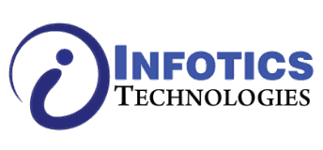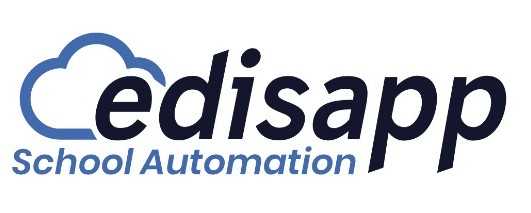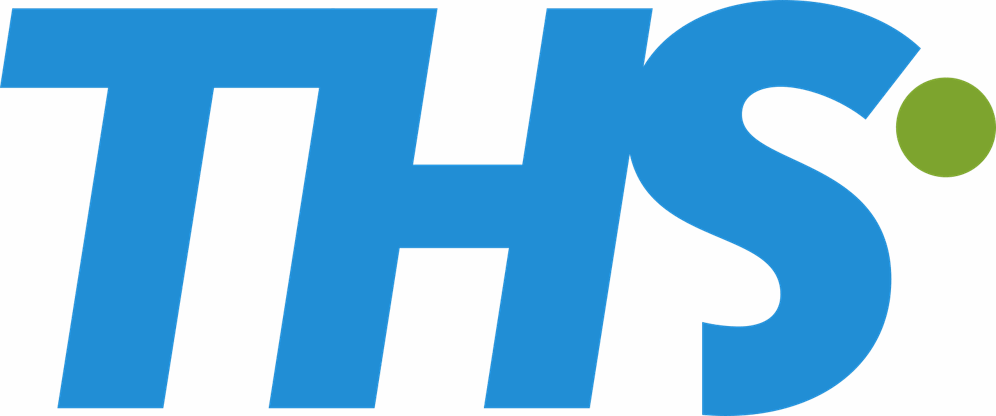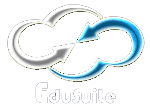Yes, the Campus Management System (CMS) may be accessed from many devices and platforms. It is designed to work with a variety of operating systems and devices, including laptops, tablets, and smartphones. CMS can be accessed with your choice web browser on Windows, iOS, or Android devices. Students, faculty, and staff can now access critical university information and services at any time and from any location, making it more convenient and efficient.
List of 20 Best Campus Management System
TrackMyClass, an effortless technology solution to simplify your campus operations. Along with a wide range of traditional ERP features, it also provides cutting-edge tools such as Private Social Network, LessonTube, and Trackables to enhance skills...Read More Track my class
Fedena is a school management software utilized by schools worldwide to optimize their administrative, managerial, and learning processes. With its intuitive interface and extensive functionalities, Fedena simplifies school operations and empowers ed...Read More Fedena
Infotics Institute Management Information System - a specialized software for schools. It streamlines financial, academic, administrative, and management tasks, making it the perfect solution for effective school administration. Its advanced technolo...Read More Infotics Institute Management Information System
Academics ERP is a management solution for academic institutions. Simplify your operations and boost productivity across all levels, from primary and secondary schools to universities, polytechnics, medical colleges, coaching centers, and more. With...Read More Academics
Innate Infotech School Management System solution for optimizing school functions. Our all-in-one software offers advanced features like Time Table, Attendance, Examinations, Gradebooks, News, Hostel, Library, and Transportation, all in a seamless in...Read More Innate Infotech - School Management System
EdFly Learn - the advanced learning management system suited for educators and students. With a user-friendly interface, it provides a complete E-learning platform and effective performance monitoring for seamless learning. Discover the potential of...Read More EdFly Learn
Soft School, a School/College Administration Software designed to provide customizable role-based security. This comprehensive software streamlines essential school operations including Student Information (Fee, Marks, and Attendance), Employee Infor...Read More Soft School
Yash Campus, a Educational ERP solution designed for schools, colleges, and other educational institutions. Our modular structure allows for easy customization to meet the unique requirements of any institute. With a browser-based interface and multi...Read More Yash Campus
EDIT-IMSis a solution for efficiently managing all operations of educational institutions. This powerful software offers a variety of modules such as Admissions, Student Activities, Staff Management, Exam and Assignment tracking, Library Management,...Read More EDIT- IMS
Edumarshal is solution for turning your educational institution into a modern eCampus. It offers a wide range of tools and features specifically designed for schools, colleges, universities, and training institutes. Explore our free demo to discover...Read More Edumarshal
Edisapp School Management ERP is a academic solution designed specifically for schools. Our robust platform offers a wide array of advanced features, cutting-edge technology, and utmost data protection. Take advantage of complete personalization with...Read More Edisapp School Management ERP
Konfer by Alliance is a tool for convenient and cost-effective conference calls with your team, clients, or associates. Our platform streamlines communication through both landline and VoIP options, allowing you to effortlessly connect with a geograp...Read More Konfer
Eshiksa EMP, the perfect solution for educational institutes to efficiently manage all their administrative tasks. This budget-friendly and user-friendly portal simplifies processes, allowing institutes to easily handle admissions, student informatio...Read More Eshiksa EMP
Rushda College Management Software solution for efficient college administration. This software handles all business operations, from student registrations to performance analysis, with ease and automation. Stay ahead of the competition with Rushda C...Read More Rushda College Management
JILIT Campus Lynx is a and flexible IRP system specifically designed for the dynamic operational demands of modern educational institutions. Fully equipped with smart card integration, this customizable solution caters to the distinct needs of both u...Read More JILIT Campus Lynx
SYNTH ED, a trusted partner for prominent educational and healthcare organizations in the ever-evolving digital landscape. Our forward-thinking approach goes beyond technology as we guide institutions through the complexities of our dynamic era. Coun...Read More SYNTH ED
Nerd Geek Lab is a AI and ML-powered video recruitment platform. Perfect for recruitment agencies and the public sector, our innovative software simplifies the hiring process and saves precious time. Say goodbye to traditional methods and embrace the...Read More Nerd Geek Lab
eduSuite-OnDemand is aOnline Education Application perfect for educational institutions of all levels. This software, based on a SAAS model, offers a cloud-based Education ERP that simplifies workflows and reduces manual tasks for teachers and admini...Read More eduSuite-OnDemand
ETSEED - the advanced ERP solution built for educational institutions like schools and colleges. This cutting-edge software streamlines all management tasks, from parent portal management to attendance tracking and transport management. With ETSEED,...Read More ETSEED
eSchool is a school management software that offers unmatched flexibility and adaptability to suit any administrative flow, regardless of location. Our innovative platform effortlessly integrates changes in the administration process, making it the m...Read More eSchool
Learn More About Campus Management System
- What Is Campus Management System?
- What Are The Recent Trends In Campus Management System?
- Benefits Of Using Campus Management System
- Important Factors To Consider While Purchasing Campus Management System?
- What Are The Key Features To Look For In Campus Management System?
- Why Do Businesses Need Campus Management System?
- How Much Time Is Required To Implement Campus Management System?
- What Is The Level Of Customization Available In Campus Management System?
- Which Industries Can Benefit The Most From Campus Management System?
- Conclusion
What Is Campus Management System?
A Campus Management System (CMS) is a comprehensive software system that streamlines and improves administrative and academic procedures in educational institutions. It was specifically designed to satisfy the demands of schools, colleges, and universities, making it an indispensable tool for any educational institution looking to improve efficiency and production.
A CMS's primary function is to centralize and automate all of the critical operations associated with campus management, such as student enrollment, registration, scheduling, fee management, attendance tracking, course management, and more. A CMS allows schools and universities to reduce manual paperwork and eliminate redundant processes, freeing up vital time and resources for other important duties.
A functional CMS should have a user-friendly interface and include capabilities like financial aid management, campus facility management, alumni management, and report generating. It should also allow for modification based on the institution's individual demands, ensuring that all parts of campus management are adapted to the organization's specifications.
With a CMS in place, educational institutions can reap various benefits, such as greater communication among students, staff, and teachers, accurate data management, more cooperation, and better decision-making based on real-time information. A CMS can also facilitate online learning, making it easier for schools to transition to remote education and stay competitive in today's digital world.
What Are The Recent Trends In Campus Management System?
The education industry has changed dramatically in recent years, and campus management systems have evolved to keep pace. To make an informed purchase, a buyer must stay up to date on the newest trends in campus management systems. You should be aware of the following recent trends in campus management systems:
1. Cloud-Based Solutions: With the increasing reliance on technology, many campus management systems are transitioning to cloud-based solutions. These systems provide simple access, increased security, and lower costs for institutions, making them a popular choice among customers.
2. Mobile-Friendly Interface: Another popular feature in campus management systems is the incorporation of a mobile-friendly interface. This enables students, instructors, and staff to access the system via smartphones or tablets, improving convenience and efficiency.
3. Artificial Intelligence And Machine Learning: Campus management systems are using AI and ML to automate procedures and improve decision-making. This tendency is projected to accelerate in the future, making campus management systems more efficient and effective.
4. Integration With Learning Management Systems: Many schools are now connecting their campus management systems with Learning Management Systems (LMS) to streamline operations and improve student learning experiences. This approach promotes improved communication and collaboration between instructors and students.
5. Data Analytics: With the massive amounts of data created by campus management systems, data analytics has become a popular trend in recent years. These systems now have the potential to evaluate data and deliver useful insights, allowing institutions to make more informed decisions.
Benefits Of Using Campus Management System
A campus management system is a complete digital platform that automates many operations and tasks within an educational institution. It is a valuable tool that can benefit students, instructors, and staff by centralizing and streamlining several elements of campus life. The following are some of the primary advantages of employing a campus management system, making it a must-have for every progressive educational institution.
1. Streamlines Administrative Tasks: One of the most major advantages of employing a campus management system is its ability to automate and streamline administrative processes. This system enables administrators to manage admissions, student enrollments, course registrations, fee payments, and other administrative tasks more efficiently, eliminating paperwork and errors.
2. Improves Communication: Effective communication is essential in any educational setting. A campus management system provides a dedicated communication channel for students, professors, and administration staff. It incorporates SMS and email notifications, forums, and discussion boards to let people share information and collaborate more effectively.
3. Improves Student Experience: From online admissions to classroom scheduling, a campus management system contributes to a better overall student experience. It allows students to easily access information, manage their academic records, and communicate with instructors and staff. This not only saves time, but also improves the engagement and efficiency of the learning process.
4. Improves Data Management: Educational institutions deal with a large volume of data, ranging from student records to financial information. Manually tracking this data can be burdensome. A campus management system facilitates effective data administration and organization, allowing for easy access and retrieval when necessary.
5. Provides Real-Time Insights: Campus management systems include analytical tools that provide real-time information on many areas of the institution. These insights can be utilized to spot patterns, monitor student performance, and make educated decisions that improve student outcomes.
6. Improves Time And Cost Efficiency: By streamlining administrative operations and minimizing manual duties, a campus management system saves educational institutions time and money. It eliminates the need for several software and tools, making it an affordable alternative for managing campus operations.
Important Factors To Consider While Purchasing Campus Management System?
When it comes to purchasing a campus management system, there are numerous key elements to consider. This can be a big investment for any educational institution, so it is critical to select the correct system that meets your specific requirements and produces the intended outcomes.
Here are some important aspects to consider before making a decision.
1. Scalability: The system's scalability is one of the most important considerations. As your institution expands, so will your needs and operations. It is critical to select a system that can handle this expansion and is easily upgraded and expanded.
2. User-Friendly Interface: A user-friendly interface is required for any software, including a campus administration system. It should be simple and straightforward to use for both administrators and end users. This saves time and shortens the learning curve for new users.
3. Customization options: Each educational institution has distinct processes and requirements. As a result, it is critical to choose a system that allows you to customize its features to meet your individual needs. This may include custom fields, workflows, and reports.
4. Integration With Existing Systems: The campus management system should work seamlessly with your current systems, such as the student information system, financial management software, or learning management system. This eliminates the need for duplicate data entry and streamlines operations.
5. Security: When dealing with sensitive data like student information, security comes first. It is critical to choose a system that includes data encryption, regular backups, and strong access controls to protect against cyber threats.
6. Technical Support And Training: The campus management system's successful implementation and use require adequate technical support and training. Make sure the vendor provides dependable technical support and training to guarantee a smooth transition and optimize the system's capabilities.
7. Cost: Finally, the system's cost should be carefully addressed. It's critical to go beyond the original purchase price and include ongoing maintenance fees, support fees, and prospective upgrade prices. When selecting a campus management system, consider these aspects and carefully evaluate the available solutions to make an informed decision. Before making a final selection, it is critical to consult with key stakeholders, conduct extensive research, and request demos and references. A well-chosen campus management system can improve your institution's operations and contribute to its overall success.
What Are The Key Features To Look For In Campus Management System?
When shopping for a Campus Management System (CMS), consider your institution's individual needs and requirements. However, some critical elements are required for any efficient CMS. Here are the key things to look for in a Campus Management System:
1. Student Information Management: A successful CMS should include strong student information management features, such as the capacity to store and update student data, track academic achievement, and manage attendance and disciplinary records.
2. Course Administration: The system should include a robust course administration module that enables administrators to develop and publish course schedules, track enrollments, and manage resources and materials for individual classes.
3. Communication Tools: In today's fast-paced digital landscape, clear communication is essential. Look for a CMS that supports email and SMS integration, online forums, and real-time messaging to improve communication among staff, students, and parents.
4. Financial Management: A CMS with financial management tools can help improve the billing and payment process for both the institution and its students. Look for options such as online fee payment, invoice production, and financial reporting.
5. Integration With Learning Management Systems (LMS): A CMS that works seamlessly with an LMS can provide students with a consistent and efficient learning experience. Check for compatibility with popular LMS platforms including Moodle, Blackboard, and Canvas.
6. Mobile Accessibility: In today's mobile-centric environment, a CMS that can be accessed via a mobile app can be useful and flexible for both students and faculty. Look for a CMS that includes a user-friendly and effective mobile application.
7. Analytics And Reporting: The capacity to track and analyze data is an essential component of any CMS. Look for a system that provides sophisticated analytics and reporting features, such as bespoke dashboards and data visualization, to assist you in making educated decisions.
8. Security And Privacy: Given the growing threat of cyber attacks, it is critical to select a CMS that prioritizes security and user privacy. Look for features like data encryption, multi-level access control, and scheduled backups.
9. Scalability: As your organization expands, so will your requirements. Choose a scalable CMS that can adapt to your institution's changing needs while maintaining performance and functionality.
10. Customer Support: Finally, customer support is a vital consideration when selecting a CMS. Look for a system that provides dependable and responsive customer support, including training and technical assistance, to enable a smooth implementation and continuous usage of the system.
Why Do Businesses Need Campus Management System?
Campus management systems are critical tools for education-related businesses, including schools, colleges, and universities. These systems provide a complete solution for managing all areas of campus operations, such as student registration, course scheduling, fee payments, exam administration, and more. Here are a few important reasons why organizations want a campus management system:
1. Streamline Administrative Chores: A campus management system may automate and streamline a variety of administrative operations, including student data management, course registration, and fee collections. This decreases the workload for administrative workers, allowing them to concentrate on more important activities.
2. Improve Communication And Collaboration: A campus management system facilitates efficient communication and collaboration among students, instructors, and staff. It provides a consolidated platform for exchanging information, announcements, and notifications, hence increasing communication efficiency and transparency.
3. Increase Student Engagement: A campus management system, with features such as online course materials, discussion forums, and assignment submissions, can boost student interest and participation. This results in a more dynamic and enriching learning experience.4. Improve data management: A campus management system provides a single database to store all student and institutional data, ensuring data accuracy and security. This makes it easy to compile reports and analyze data, allowing for more informed decisions.
5. Improve Operational Efficiency: By automating numerous operations and providing real-time access to information, a campus management system can considerably boost an educational institution's operational efficiency. This leads to cost savings and increased production.
6. Improved Student Experience: By offering a consistent and user-friendly experience, a campus management system can improve students' overall experiences. They may readily access information, engage with instructors and peers, and monitor their academic progress, making the learning process more easy and efficient.
How Much Time Is Required To Implement Campus Management System?
When considering deploying a campus management system, one of the most typical questions purchasers ask is how long it would take to get the system up and running. The answer to this question varies depending on a variety of criteria, including the institution's size, the system's complexity, and the level of customization required. On average, it can take 6 months to a year to fully establish a campus administration system.
This comprises both the original planning and research phases, as well as the actual implementation and testing of the system. Keep in mind that this schedule may change based on your institution's specific needs and regulations. The first stage in adopting a campus management system is a thorough assessment of your institution's needs and requirements.
This could include performing a gap analysis to find places where the system can increase efficiency and streamline procedures. Once this is completed, you may begin the process of selecting and customizing a system that suits your requirements. The actual installation procedure can take anywhere from three to six months, depending on the system's complexity.
During this period, the system will be adjusted to match your institution's operations, data will be moved, and users will receive training. It is vital to remember that the deployment process may demand significant engagement from both your institution and the software provider, so establishing a dedicated project team is critical.
After the system has been installed, it is critical to thoroughly test it and troubleshoot any problems that may develop. This may take an extra 2-3 months because it is critical to ensure that the system is fully operational before it is used by the entire institution.
What Is The Level Of Customization Available In Campus Management System?
The level of customisation available in a Campus Management System (CMS) is an important consideration to consider when selecting a system to match your institution's specific demands. CMS customisation refers to the capacity to personalize and tailor the system to your individual needs and processes. When it comes to personalization, CMS platforms provide various levels of freedom and control. Some systems have limited modification options, but others provide extensive customization, allowing you to develop a system that smoothly integrates with your institution's activities. Before investing in a CMS, it is critical to understand the customization possibilities available and assess whether they match your institution's requirements.
Here are some important aspects to consider:
1. User Interface Customization: Many CMS platforms let you personalize the user interface by adding your institution's logo, selecting color schemes, and rearranging menu items. This level of personalization might assist your staff and students navigate a more familiar and intuitive interface.
2. Module Customization: CMS modules are the system's main components, including admissions, enrollment, and course management. A decent CMS should allow you to adjust these modules to fit your institution's specific processes and workflows. For example, you could want to create new data fields or alter existing ones to collect certain information.
3. Integration Customisation: Integration customisation enables you to link the CMS to other systems or applications used by your school, such as Student Information Systems (SIS), Learning Management Systems (LMS), or financial systems. This level of customization allows for seamless data transfer while reducing the need for human data entry.
4. Role-Based Customisation: Each institution has unique duties and responsibilities, and a successful CMS should provide role-based customisation. This feature allows you to restrict access to specific modules, data, or features depending on user roles, ensuring that all employees have the appropriate access and rights.
5. Reporting Customization: Reporting is a critical component of a CMS because it gives information about your institution's performance. Reporting customization possibilities include developing bespoke reports based on your institution's specific needs, such as enrollment trends, student statistics, or financial reports.
Which Industries Can Benefit The Most From Campus Management System?
Campus Management Systems (CMS) are strong and comprehensive software systems that aim to streamline and optimize all aspects of higher education institutions, from administrative activities to academic operations. This technology has grown in popularity in recent years, and with good reason: it provides multiple benefits and advantages to various companies within the education sector.
A Campus Management System benefits the entire higher education business. With an increased demand for advanced education and a growing number of students enrolling in colleges, managing multiple departments and processes can be difficult. CMS provides a consolidated platform for all activities, enabling the efficient and successful management of admissions, enrollment, course planning, scheduling, and financial aid processes.
A Campus Management System can also be very beneficial to the healthcare industry. Many healthcare institutions provide training and continuing education courses, which can be easily administered using a CMS. This allows hospitals and healthcare institutions to track and monitor the progress of medical students and personnel, ensuring that they are up to date on the most recent practices and standards.
The corporate sector can likewise benefit from a CMS. Companies that offer employee training programs might utilize a content management system to manage course registration, tracking, and evaluation. This can help firms save time and resources while also ensuring that their staff obtain the training they require to remain competitive in the market.
A Campus Management System can also assist government organizations, such as public schools and state-funded colleges. These schools may use CMS features to automate administrative processes, monitor student progress and performance, and properly manage money.
Conclusion
In conclusion, a campus management system is an essential tool for educational institutions seeking to streamline administrative operations and improve overall efficiency. Schools can use a campus management system to improve communication, student data management, and financial operations, resulting in a better learning experience for students and a more organized and productive work environment for faculty. When considering acquiring a campus management system, it is critical to prioritize your institution's unique needs and objectives.
Look for a system that has a variety of capabilities, is customizable, has an easy-to-use interface, and provides outstanding customer service. Consider whether cloud-based or on-premise deployment is the best fit for your organization, and allocate your budget appropriately. It is also critical to involve important stakeholders, including as faculty, staff, and students, in the decision-making process to ensure that the chosen system satisfies their needs and expectations. Don't forget to check the system's integration capabilities with your current software and infrastructure to avoid compatibility concerns.
Before making a final selection, conduct thorough research on the vendor's reputation, security measures, and pricing possibilities. Request demonstrations or free trials, as well as references from other schools that use the same technology. This will provide you with a greater knowledge of the system's functioning, usability, and reliability.
Investing in a campus management system allows educational institutions to streamline their procedures, provide a more integrated learning environment, and ultimately improve the overall experience for all stakeholders.Consider the considerations listed above and carefully choose a system that meets your institution's specific needs and goals. With the correct campus management system, your institution can stay ahead of the curve in today's ever-changing and competitive educational environment.
Campus Management System FAQ's
Can Campus Management System Be Accessed Across Multiple Devices And Platforms?
Is Campus Management System Future-Proof and Adaptable To Emerging Technologies Like Ai, Blockchain or Iot?
Yes, the Campus Management System is intended to be future-proof and adaptable to evolving technology. It works alongside AI to automate administrative duties and streamline procedures. It uses blockchain technology to manage data in a secure and transparent manner. It also uses IoT for real-time monitoring and analysis of campus operations. With its flexible architecture and frequent upgrades, the system is ready to accept new technologies and improve the overall campus management experience.
Is There A Free Trial Offered To Assess Campus Management System Before Committing?
Yes, many Campus Management Systems provide a free trial period to allow customers to evaluate the system before making a purchase decision. This allows customers to explore the features and capabilities, as well as test its suitability for their institution's requirements. It is recommended that you use the trial time to confirm that the system satisfies all of your requirements before making a final decision.
Does Campus Management System Offer Data Security Features And Meet Regulatory Compliance Standards?
Yes, Campus Management System has strong data security measures and meets regulatory compliance criteria. To protect critical student and teacher information, it uses encryption mechanisms, access controls, and conducts regular security assessments. It also follows regulatory requirements such as FERPA and GDPR. Rest assured that your data is safe and secure with our Campus Management System.
Can Campus Management System Integrate Seamlessly With Existing Tools And Platforms?
Yes, a smart campus management system (CMS) should work seamlessly with existing tools and platforms. API connectors and customizations provide a smooth transmission of data across diverse platforms. A CMS, for example, can be integrated with an existing Learning Management System to improve the flow of student information, course schedules, and grades. A CMS can also link with finance, human resources, and library systems, allowing for more complete and efficient campus management.






















